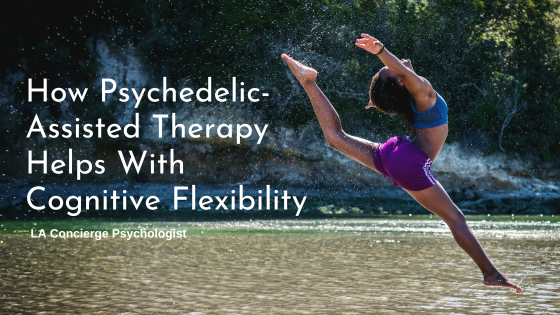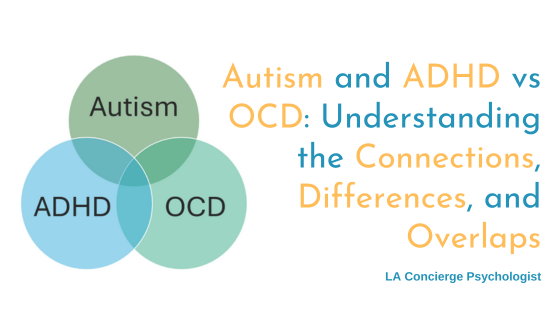This blog post—the first in a two-part series—defines self-advocacy and demonstrates why it is essential for autistic adults to learn this skill. See Part 2 for instructions on using this skill in your own life and for more self-advocacy examples.
Allistic (non-autistic) people often make false assumptions about the needs, preferences, and strengths of autistic people. Autistic adults—who often communicate differently and struggle with social anxiety—aren’t always able to correct these assumptions. As a result, they can lack independence and self-determination in their lives.
Fortunately, it is possible to empower autistic people through education. Allistic people who learn about autism can support and empower their autistic peers. At the same time, autistic people can more effectively communicate their needs, get the support they need, and pursue their goals if they acquire a skill called “self-advocacy.”
How we define “self-advocacy”
If you have ever been encouraged to “advocate for yourself,” you may be wondering what that means. To “advocate” means to “speak or write in favor of” something, so self-advocacy is simply to communicate in favor of oneself.
Everyone needs self-advocacy skills. Without them, people lose control over their lives. They have no choice but to allow others to make decisions for them, even when those decisions aren’t in their best interests. Since self-advocacy skills facilitate autonomy, they are a must-have for independent adults.
Self-advocacy is even more essential in the context of autism. Autistic people face bias, ignorance, and ableist attitudes that can prevent them from leveraging their strengths, finding the right support, and determining the course of their own lives.
To demonstrate why this concept is so important, we’ve created a list of things autistic people can do when they have strong self-advocacy skills. If you’re an autistic person wondering how to incorporate this concept into your life, the self-advocacy examples we provide below will give you an idea. In a future post, we’ll provide more detailed instructions.
Self-advocacy skills can help you. . .
Achieve independence
When you were younger, your parents likely had complete control over your routine, diet, finances, etc. Other authority figures, including teachers and school counselors, also exerted control over you.
As you matured, you likely experienced a desire for greater autonomy. As an adult, you have the right to decide how you want to live and what values you will defend.
Pursue educational and professional opportunities
Some people wrongly assume that autistic people can’t get college degrees or hold full-time jobs. Unless you learn how to stand up for yourself, these assumptions might come between you and your goals.
You’ll be able to make the most of educational and career opportunities with self-advocacy skills. For example, you’ll be able to ask your college professor for clarification when you don’t understand something they say in class. On the job, self-advocacy can help you ask for things like accommodations, a raise, or a promotion.
Connect with needed supports
An autistic high school student’s needs are often assessed and fulfilled for them through an Individualized Education Plan (IEP). Parents also play a prominent role in connecting their autistic children with whatever resources they need.
If you are an autistic adult, you already know that things change after you graduate high school. In college, autistic adults must determine their own needs and request suitable accommodations. For example, you probably won’t receive extra time for test-taking unless you ask for it. The same is true in the workplace; it is doubtful that anyone will anticipate your needs or volunteer to help you meet them. You must take the initiative and do it yourself.
Manage relationships
Unless you learn how to communicate your needs to friends, family, romantic partners, etc., your relationships will be one-sided and unfulfilling. The people around you can’t know what your needs are unless you explicitly tell them.
Learning self-advocacy skills can protect you from mistreatment and manipulation. When you know how to create physical and emotional boundaries, you can defend yourself in social situations. Since autistic people (especially those socialized as females) are vulnerable to sexual exploitation, the importance of self-advocacy in autism relationships cannot be overstated.
Embrace your uniqueness
Ableist views assert that neurotypical people are somehow superior to autistic people and that non-normative behaviors should be eliminated. Sadly, these views are common. Unless autistic people have the skills and confidence to challenge them, they will be repressed by them.
For example, imagine a situation where your new therapist offers you “treatment” options for “curing” your autism. You don’t view your autism as a disease, so you know this therapist won’t be a good fit for you. If you know how to advocate for yourself, you can find support workers who embrace and celebrate your neurodiversity.
Correct offensive language
How do you prefer to talk about autism? Do you like person-first language (“person with autism”) or identity-first language (“autistic person”)? How would you feel if someone called you “deficient” or “mentally challenged”?
Most autistic people and autism advocates agree that the most important thing when choosing words is to emphasize the humanity and worth of autistic people. However, they sometimes disagree regarding which words accomplish this best. Whatever your linguistic preferences, self-advocacy skills allow you to express them and have more control over the labels people apply to you.
Challenge ableism, incorrect assumptions, and tokenism
There are many false beliefs about autism, such as the idea that all autistic people are unintelligent (or that they’re all genius savants). When you encounter assumptions like these in your everyday life, there is more at stake than your individual rights. If you have strong self-advocacy skills, you can correct autism myths and biases that harm all autistic people.
You can also fight back against tokenism, which is the practice of making symbolic gestures for diversity that don’t create any real change. For example, imagine that you have been invited to join a committee at work. After several committee meetings, you realize that you are only there to meet someone else’s diversity quota, not to provide real input. To advocate for yourself and other autistic people, you might argue that your presence should be more than symbolic and your views acknowledged.
Professional Support Can Help You Self-Advocate
As adult autism specialists, we can help you learn how to effectively self-advocate for yourself. Whatever barriers to self-advocacy you’re struggling with, we can provide guidance to support you in getting your needs met. Contact us to see how we can help.



